Hello there,
In this world of fast-paced consumerism and instant gratification, we often overlook the true value of the items we purchase. We glance at price tags, weigh up options, and hand over the equivalent amount of money. However, we seldom consider the actual cost – not in dollars and cents, but in the time we’ve spent to earn that money. Indeed, it’s essential to understand that when you’re buying something, you’re not just buying with your money; you’re buying with your precious time.
Time, unlike money, is the number one commodity we can’t control or replenish. We’re all given a set allocation of hours, minutes, and seconds. Once they’re gone, they’re gone forever.


Understanding the True Cost
Let’s put this into a tangible perspective with an example. Consider my Son Bodhi who wanted to buy a bike worth $2,500. In his case, every $50 note equates to five hours of his time after tax. Hence, buying the bike would cost him 250 hours of his life, and he’s only a kid. if you’re thinking in terms of an 8-hour working day (which is typical for most jobs) a 250 work day is equivalent to 31 days! – that’s a significant chunk of time.
To put this into your own context, it can be valuable to work out your hourly rate based on your income after tax. If you’re unsure how to calculate it, this handy pay calculator can help. It’s an eye-opening exercise that can give you a new perspective on your spending habits.
Things become even more complicated when we factor in debt, such as when purchases are put on a credit card. If you’re unable to pay it back straight away, the interest, fees, and charges start to add up. In Bodhi’s case, if he borrowed to buy the bike he could easily end up paying double the amount due to fees and charges, that $2,500 bike would now cost him 500 hours of his time. Translating this into working days, it would mean an alarming 62.5 days at work. That’s over two months of full-time work, dedicated just to paying off this one purchase!
This example clearly illustrates how debt can significantly amplify the true cost of what we buy, measured not just in dollars but in the precious currency of our time.
Is it Worth Your Time?
When considering a purchase, it’s valuable to view it in terms of your hourly rate. If you’re not sure what this is, work it out based on your income after tax. If you’re contemplating buying a $300 jacket and you’re earning $50 an hour, that jacket is equivalent to six hours of work. That’s practically an entire working day!
Even more concerning is when you add interest or fees to that purchase, like those accrued from credit cards or Buy Now Pay Later schemes. Even an extra 25% on top could turn that six-hour jacket into an eight-hour one. Ask yourself this, would it be worth an entire day’s work to you? Be brutally honest.
The Cost Beyond Money
What is the real cost of your purchases? Are they causing you to work extra hours, perhaps in a job you don’t enjoy? Are they taking away from time you could be spending with loved ones, doing things you love, or caring for yourself?
If you were not spending so much time working to pay off debt or afford extravagant purchases, that you probably don’t need, would your desires and lifestyle change? Would you be free to do things you truly love, without the looming pressure of past purchases?
The Time-Money Paradox
It’s essential to recognise that when you’re trading money for goods, you’re essentially trading your time. This is time you can never get back. Understanding this can significantly change how you perceive your purchases, urging you to reconsider whether they’re truly worth it.
Can you get it cheaper elsewhere? Can you find an alternative that suits your needs? Do you even need it at all? These are the questions we should be asking ourselves every time we’re about to make a purchase.
In Conclusion
The true cost of an item isn’t just its price tag. More importantly, it’s the hours, days, even months or years of your life spent working to earn the money to pay for it. It’s not just about the physical cash; it’s about what that time represents, what it could otherwise mean to your life. Think about it – those hours could have been invested in personal growth, cherished moments with loved ones, or pursuing passion projects that truly make your heart sing.


The next time your fingers itch to make a purchase, take a deep breath and ask yourself: Is this item really worth the precious hours or possibly even days of my life I’ll have to invest working to pay for it? Is this where I want my time – my irreplaceable life currency – to go? When you reach for your wallet, remember, you’re not just making a simple transaction; you’re making a life-altering decision.
As always, I’m here for your queries and discussions on this or any other topic that resonates with you. Don’t hesitate to reach out. Until next time, remember, time is the single most valuable asset we possess. Treat it as such and spend it wisely.
All the best,
Kitty xx




